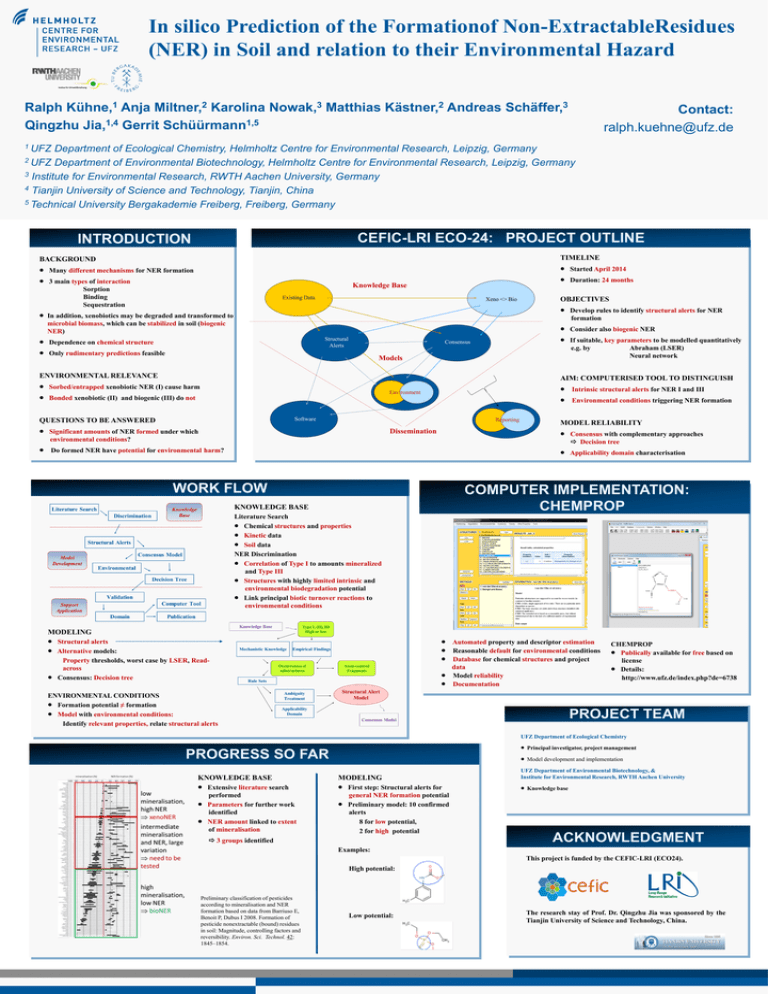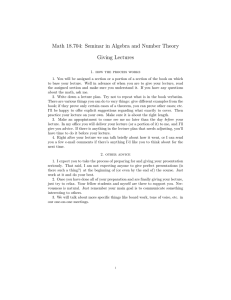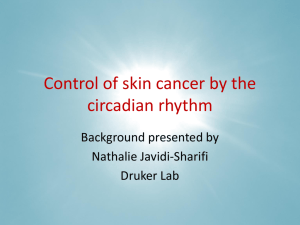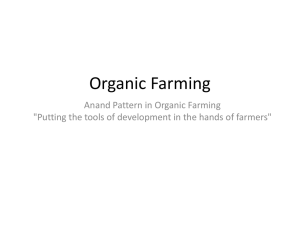ACKNOWLEDGMENT WORK FLOW INTRODUCTION PROGRESS
advertisement

In silico Prediction of the Formationof Non-ExtractableResidues (NER) in Soil and relation to their Environmental Hazard 1 Kühne, 2 Miltner, Ralph Anja Karolina Qingzhu Jia,1,4 Gerrit Schüürmann1,5 3 Nowak, Matthias 2 Kästner, Andreas 3 Schäffer, Contact: ralph.kuehne@ufz.de 1 UFZ Department of Ecological Chemistry, Helmholtz Centre for Environmental Research, Leipzig, Germany 2 UFZ Department of Environmental Biotechnology, Helmholtz Centre for Environmental Research, Leipzig, Germany 3 Institute for Environmental Research, RWTH Aachen University, Germany 4 Tianjin University of Science and Technology, Tianjin, China 5 Technical University Bergakademie Freiberg, Freiberg, Germany CEFIC-LRI ECO-24: PROJECT OUTLINE INTRODUCTION TIMELINE BACKGROUND • • • • • • • Many different mechanisms for NER formation 3 main types of interaction Sorption Binding Sequestration Knowledge Base Existing Data • In addition, xenobiotics may be degraded and transformed to microbial biomass, which can be stabilized in soil (biogenic NER) Dependence on chemical structure • • Consensus Only rudimentary predictions feasible Models ENVIRONMENTAL RELEVANCE • • • Develop rules to identify structural alerts for NER formation Consider also biogenic NER If suitable, key parameters to be modelled quantitatively e.g. by Abraham (LSER) Neural network AIM: COMPUTERISED TOOL TO DISTINGUISH Sorbed/entrapped xenobiotic NER (I) cause harm • • Environment Bonded xenobiotic (II) and biogenic (III) do not Software QUESTIONS TO BE ANSWERED • Duration: 24 months OBJECTIVES Xeno <> Bio Structural Alerts Started April 2014 Reporting • • Do formed NER have potential for environmental harm? WORK FLOW Environmental conditions triggering NER formation MODEL RELIABILITY Dissemination Significant amounts of NER formed under which environmental conditions? Intrinsic structural alerts for NER I and III Consensus with complementary approaches Decision tree Applicability domain characterisation COMPUTER IMPLEMENTATION: CHEMPROP KNOWLEDGE BASE Literature Search • Chemical structures and properties • Kinetic data • Soil data NER Discrimination • Correlation of Type I to amounts mineralized and Type III • Structures with highly limited intrinsic and environmental biodegradation potential • Link principal biotic turnover reactions to environmental conditions MODELING • • • • • • Structural alerts Alternative models: Property thresholds, worst case by LSER, Readacross Consensus: Decision tree • • Automated property and descriptor estimation Reasonable default for environmental conditions Database for chemical structures and project data Model reliability Documentation ENVIRONMENTAL CONDITIONS • Formation potential ≠ formation • Model with environmental conditions: Identify relevant properties, relate structural alerts CHEMPROP • Publically available for free based on license • Details: http://www.ufz.de/index.php?de=6738 PROJECT TEAM UFZ Department of Ecological Chemistry PROGRESS SO FAR KNOWLEDGE BASE • • • Extensive literature search performed Parameters for further work identified NER amount linked to extent of mineralisation MODELING • • First step: Structural alerts for general NER formation potential Preliminary model: 10 confirmed alerts 8 for low potential, 2 for high potential 3 groups identified • Principal investigator, project management • Model development and implementation UFZ Department of Environmental Biotechnology, & Institute for Environmental Research, RWTH Aachen University • Knowledge base ACKNOWLEDGMENT Examples: This project is funded by the CEFIC-LRI (ECO24). High potential: Preliminary classification of pesticides according to mineralisation and NER formation based on data from Barriuso E, Benoit P, Dubus I 2008. Formation of pesticide nonextractable (bound) residues in soil: Magnitude, controlling factors and reversibility. Environ. Sci. Technol. 42: 1845–1854. Low potential: The research stay of Prof. Dr. Qingzhu Jia was sponsored by the Tianjin University of Science and Technology, China.





